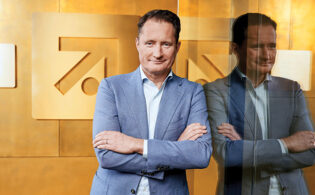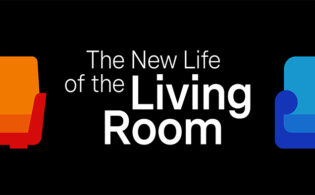 Some of the most successful and market-leading TV channels in Europe belong to the RTL Group, including RTL Television in Germany, M6 in France, RTL 4 in the Netherlands and RTL-TVI in Belgium. In each country, the flagship channel is surrounded by a group of services catering to different segments of the audience. The RTL Group also owns a stake in Atresmedia in Spain and stations in Hungary, Croatia and Luxembourg.
Some of the most successful and market-leading TV channels in Europe belong to the RTL Group, including RTL Television in Germany, M6 in France, RTL 4 in the Netherlands and RTL-TVI in Belgium. In each country, the flagship channel is surrounded by a group of services catering to different segments of the audience. The RTL Group also owns a stake in Atresmedia in Spain and stations in Hungary, Croatia and Luxembourg.
The RTL Group’s 60 TV channels and 30 radio stations belong to the broadcast division, one of three parts of the company. The second is content, consisting mainly of Fremantle, whose production companies around the world create a constant flow of scripted and unscripted shows, from My Brilliant Friend to the Idol and Got Talent franchises.
Several multiplatform networks, such as BroadbandTV, StyleHaul and Divimove, make up the third division, digital. It is also home to advertising technology and data companies, including SpotX and Yospace.
Bert Habets, the RTL Group’s CEO, began working for the company in the Netherlands, where he grew and diversified the businesses in RTL Nederland, launched new channels and established commercial ventures. In 2017, Habets took on the role of co-CEO of the RTL Group alongside Guillaume de Posch. In January of 2018, Habets became sole CEO.
Since then, Habets has been expanding the company’s Total Video strategy, which includes offering programming and serving advertisers on linear and nonlinear platforms. As he tells World Screen, among his priorities for Total Video 2.0 are creating must-watch streaming services connected to the channels in the group and boosting the creation of content across all genres—particularly high-end drama, which can be critical to the success of video-on-demand and streaming services. He is also keen on continuing to provide innovative options to advertisers across all the group’s platforms and is willing to partner with other broadcasters through the group’s international sales house, RTL AdConnect.
Given the FAANGs’ aggressive expansion into Europe, Habets is calling for European regulations to safeguard media companies. For instance, he recommends support for trusted news and local programming. Although the media business in Europe is undergoing significant transformation, Habets is confident in the group’s strengths: its financial health—in 2018, group revenues amounted to €6.5 billion ($7.4 billion)—its market-leading channels and nonlinear extensions, its capacity to create compelling content and its growing portfolio of digital businesses.
WS: As CEO of a major media company that includes content production, traditional linear channels and digital businesses, in an environment that is constantly changing, what is your strategy for planning for the future?
HABETS: We will be focusing more strongly on organic growth with our Total Video 2.0 strategy, which aims to expand our streaming services and grow our content production. Let me explain why. We are already true champions when it comes to optimizing our core business, which is reflected in our leading market positions and healthy financials, and that’s something we will absolutely continue.
However, our business is becoming increasingly challenging. With rapidly changing consumer behavior and global tech giants capturing an ever-growing share of advertising spend and audience attention, we have moved from a locally competitive landscape to one that is globally competitive—a seismic shift for our industry.
In the U.S., many media companies have reacted by making multi-billion-dollar acquisitions. We have chosen a different approach. More than ever, we will focus on fostering creativity, being close to our audiences, taking more risks and ensuring closer cooperation within RTL Group.
All of this is more easily said than done. To succeed requires a deep cultural change across the whole group, which takes time. This is why, in the first half of 2018, we started a comprehensive group-wide transformation journey called “New Frontiers—reinventing RTL’s pioneering spirit.”
WS: RTL Group has already made investments in VOD. In which of the territories where the group is present is VOD most popular? What plans do you have to increase VOD offerings?
HABETS: With our Total Video 2.0 strategy, I see two clear priorities for RTL Group: building local streaming champions and strengthening our content creation. We’ve started developing the roadmap to a joint tech platform for our VOD services, with the intention that all streaming platforms will ultimately migrate to it. This tech platform will be a collaboration between RTL Group’s units and will encompass a high level of flexibility for local operations.
Over the next three years, we will invest at least an additional €350 million ($397 million) to boost the expansion of our local streaming services—€300 million ($340 million) of which will be for additional content investments across all genres. As our streaming services are deeply integrated into our families of TV channels across our footprint, these investments will have a very limited impact on our operating profit, so we will continue to generate very healthy profit margins. In other words, every investment in local, exclusive content is a long-term one—strengthening both our linear TV channels and our streaming services.
At the end of 2018, RTL Group passed 1 million paying subscribers, combining the subscriber bases of the recently relaunched TV Now Premium in Germany and Videoland in the Netherlands. We will start similar services in other countries. Over the next three years, we aim to triple our total number of paying subscribers to at least 3 million.
WS: Similarly, what plans do you have for increasing the group’s streaming services and in which countries?
HABETS: Apart from what I have just described, in France our M6 Group, the public broadcaster France Télévisions and our commercial competitor TF1 Group announced in June 2018 that they will join forces to build Salto, a joint French video platform. Users of Salto will have access to different subscription models and varied exclusive content. An independent company, owned equally by all three companies, will operate the platform, following regulatory approval by the relevant authorities.
In our smaller business units, we have launched VOD offers based on M6 Group’s on-demand service 6play: RTL Play in Croatia and Belgium, and RTL Most! in Hungary. Now they can offer their advertisers improved services, such as more targeting, brand safety, a high level of attention and a greater reach on all devices.
WS: Fremantle was one of the group’s revenue drivers in 2018. What led to its strong performance? What are your priorities for Fremantle?
HABETS: Fremantle is our global content powerhouse and home to the best creative talent. This was shown clearly in their results for 2018, mainly in North America, in Germany (UFA) and by the Canadian video game company Ludia. In North America, with the return of television’s most successful and recognized music competition—American Idol—on ABC, Fremantle scored a huge success. It was ABC’s number one entertainment show of 2018 and performed over 50 percent higher than the broadcaster’s prime-time average. By the end of the season, American Idol had accumulated more than 1 billion video views across all social media platforms, and the American Idol app had been downloaded over 1.2 million times—a huge success in digital.
In global drama production, Fremantle, together with broadcasters and streaming platforms, is currently working on realizing more than 35 scripted series ideas. Hence, international drama production is forecast to generate €500 million ($567 million) in revenues in 2021, up from around €300 million ($340 million) in 2018.
Next to successful productions such as Deutschland 86 and Picnic at Hanging Rock, I would like to highlight Wildside’s My Brilliant Friend, the adaptation of the first of Elena Ferrante’s Neapolitan Novels. It’s a family saga set in 1950s Naples, produced entirely in Italian, even in the Neapolitan dialect. U.S. premium cable network HBO is a co-producer, and for the first time ever, it’s participating in a non-English-language series. A few years ago, no one would have thought this possible. The series was extremely successful, and it was Italy’s number one new drama of 2018. A second season has already been announced by HBO and Rai.
WS: How would you like to extend the connection between Fremantle and the broadcasters in the group?
HABETS: More than ever, local, exclusive content is the engine for everything we do. It is our USP and it’s the reason we will increase our investment in exclusive content, across all major genres: scripted, entertainment, factual, news and information, live sport and also digital-first content.
Drama series are key for RTL Group’s VOD expansion plans. We established a VOD content working group with Fremantle and our major broadcasters to explore the joint development of high-end drama series.
We will explore all possibilities to jointly develop strong brands and formats—between our broadcasters, and between them and Fremantle—to satisfy the increasing demand for good content.
WS: What are the plans for building a digital group to serve young audiences with short-form video?
HABETS: As part of our Total Video 2.0 strategy, we are determined to grow our multiplatform network (MPN) businesses. Fostering much closer collaboration between our various stand-alone MPN assets, including StyleHaul, Divimove and United Screens, will contribute to this. Our goal is to build a strong and profitable digital video group to reach and entertain young audiences with compelling short-form video content.
The first concrete steps have been a new management team at StyleHaul, the 100 percent step up in Divimove, as well as the combination of Divimove and UFA X. UFA X will significantly enhance Divimove’s capabilities in digital storytelling and format development.
WS: What opportunities do you see in short-form video?
HABETS: Use of short-form videos keeps growing rapidly, in particular on mobile devices and among younger people. This is a key audience for us and our advertising clients. Advertising and branded-content revenues in the YouTube ecosystem keep on growing dynamically.
The MPN market is complementing our families of channels on national levels—we’ve developed strong number one and two positions with our investments, and they are well positioned to grow their profit contributions significantly. To succeed, we will attract the biggest talents and formats, and we will monetize our content globally, across all platforms, building our own sales capabilities. We will also develop much more of our own content—with new production facilities, digital-first productions from Fremantle and further partnerships, such as with our sister company BMG.
WS: In today’s total video world, what is RTL Group offering advertisers?
HABETS: We see more and more global ad buying from advertisers and agencies, driven by the “walled gardens.” As a consequence, we are investing in our international sales house, RTL AdConnect, to ensure it serves international advertisers and agencies with our families of channels, our on-demand services and our MPNs.
For example, we will expand offers for advertisers to run pan-European digital video campaigns on our on-demand services and MPNs, either via direct sales or programmatically via a unified booking tool.
And we are very much open to strategic partnerships because scale is key. For example, RTL AdConnect already cooperates closely and successfully with Rai in Italy and with ITV, the number one U.K. commercial broadcaster. More concretely, RTL AdConnect represents ITV on a global level outside the U.K.
As online video advertising is maturing and hitting the TV screen, SpotX, our flagship investment in ad tech, is building the next generation of video advertising solutions, incorporating not only nonlinear but also advanced linear audience buying. Our recent acquisition of Yospace, which provides targeted and seamless advertising insertion on streaming services, is an important step in building our Total Video portfolio and will help drive two strategic goals at the same time. First, we gain a competitive, fully integrated and profitable solution, which is key to further growing our ad-tech business. Our goal is to continue expanding SpotX into a leading, independent monetization platform for broadcasters, video-on-demand services and publishers. Second, this acquisition will also help build local streaming champions in the markets where we have strong families of channels.
WS: Do you feel there is a need for regulation of the major global digital businesses—Google, Facebook, etc.—and if so, what type of regulation is needed?
HABETS: Distribution of content in the digital media world is controlled by a handful of tech giants, driven by their powerful algorithms. The key question going forward is, can we allow tech giants to also dominate the process of content creation? The year 2018 was hopefully a turning point when it comes to fair regulation—just think about the scandal around Cambridge Analytica. It has become the perfect symbol for the public debate on the tech platforms: hate speech, fake news, fake followers, dark ads and even election meddling.
Independent media, high editorial standards and a thriving creative industry are key to preserving our European values. Only independent media that actively embrace the responsibility that comes with their daily mass reach can ensure transparent and fair public debates. Only if creatives, artists and media companies can benefit from the value generated by their output can we avoid the ever-growing dominance of a few global tech platforms.
Europe has reached a turning point; it’s time for European policy to work for our creative industries. As RTL Group, we propose a new European Audiovisual Partnership: a forum convened by the [European] Commission to bring together its officials and other policymakers with C-level media representatives. Together, they should take a broad view of the European audiovisual sector and address four priority areas: support for trusted news reflecting European values; measures to support the sustainability of local programming, to strengthen Europe’s wide range of content; access to data, which works to Europe’s competitive advantage; and guarantees of fair competition in the European audiovisual sector.
WS: How are the group’s businesses in Spain performing?
HABETS: In Spain, we have a minority shareholding in Atresmedia, plus our Spanish production business with Fremantle and our ad-tech business with SpotX in Spain. Atresmedia’s TV channel Antena 3 had a very fruitful 2018 with its series. With numerous productions that scored national and international successes, it was able to expand its position in the fiction genre further. Last year, Antena 3 boasted half of the productions in the top ten most-watched Spanish series. With an average of around 3.1 million viewers, the history drama La Catedral del Mar took the top spot. La Casa de Papel leads the field as the first, and so far only, Spanish series to win an International Emmy Award.
With Fremantle in Spain, we are particularly strong in non-scripted formats such as Got Talent, The Farmer Wants a Wife, Football Nightmares and The X Factor. Family Duo, a talent show, will return this April with a second season. The original hours produced by Fremantle in Spain in 2018 increased by 32 percent.
WS: Which other broadcast businesses in the group are performing well?
HABETS: Following the integration of our French radio family into M6 Group, and the disposal of non-strategic assets—the football club Girondins de Bordeaux and monAlbumPhoto—last year, M6 Group has recently published very strong results. Its record operating profit shows the strength of its core business in TV, radio and digital. Thanks to effective portfolio management, M6 Group is in a healthy position to further thrive by entering into exclusive negotiations to acquire Lagardère’s TV business. This represents a unique strategic opportunity for M6 Group to strengthen its overall position in the French media market, both in TV advertising and digital, by leveraging the power of the strong children’s channel Gulli in on-demand TV, replay and SVOD. M6 Group would add a fourth channel to its portfolio of free-to-air DTT channels—M6, W9 and 6ter—and significantly expand its media offering for the whole family. The Gulli channel has established itself as the most powerful and trusted French children’s brand.
WS: Tell us about the group’s Factory initiative.
HABETS: With the rise of online disinformation, we believe RTL Group bears a big responsibility in raising awareness of how to use media to get credible and truthful information. Our role as a media organization goes beyond responsible reporting; we can be part of the solution for tackling disinformation and creating a generation of informed news consumers. With our Factory innovation challenge, we want to connect our talents across the group and foster innovation in media and digital literacy. Factory is aimed at our talents from all disciplines and business units who are interested in addressing the challenges of online disinformation, and who want to help improve the media literacy skills of young news consumers. Through a virtual training program followed by a physical hackathon in Berlin, participants aim to develop new digital products and services in media and digital literacy for young consumers. Ultimately, the goal is for our business to implement one of the ideas created during the innovation challenge.





